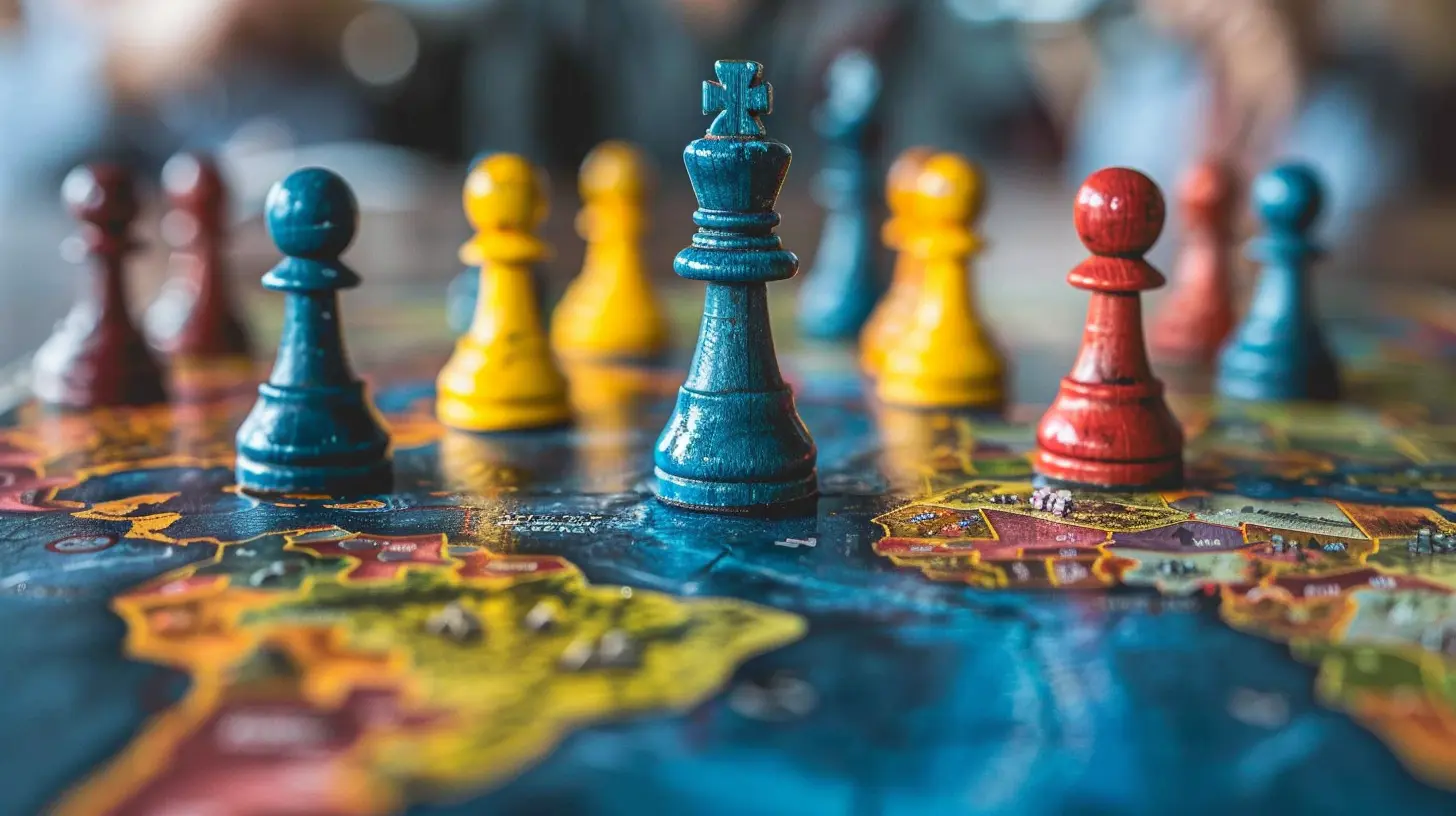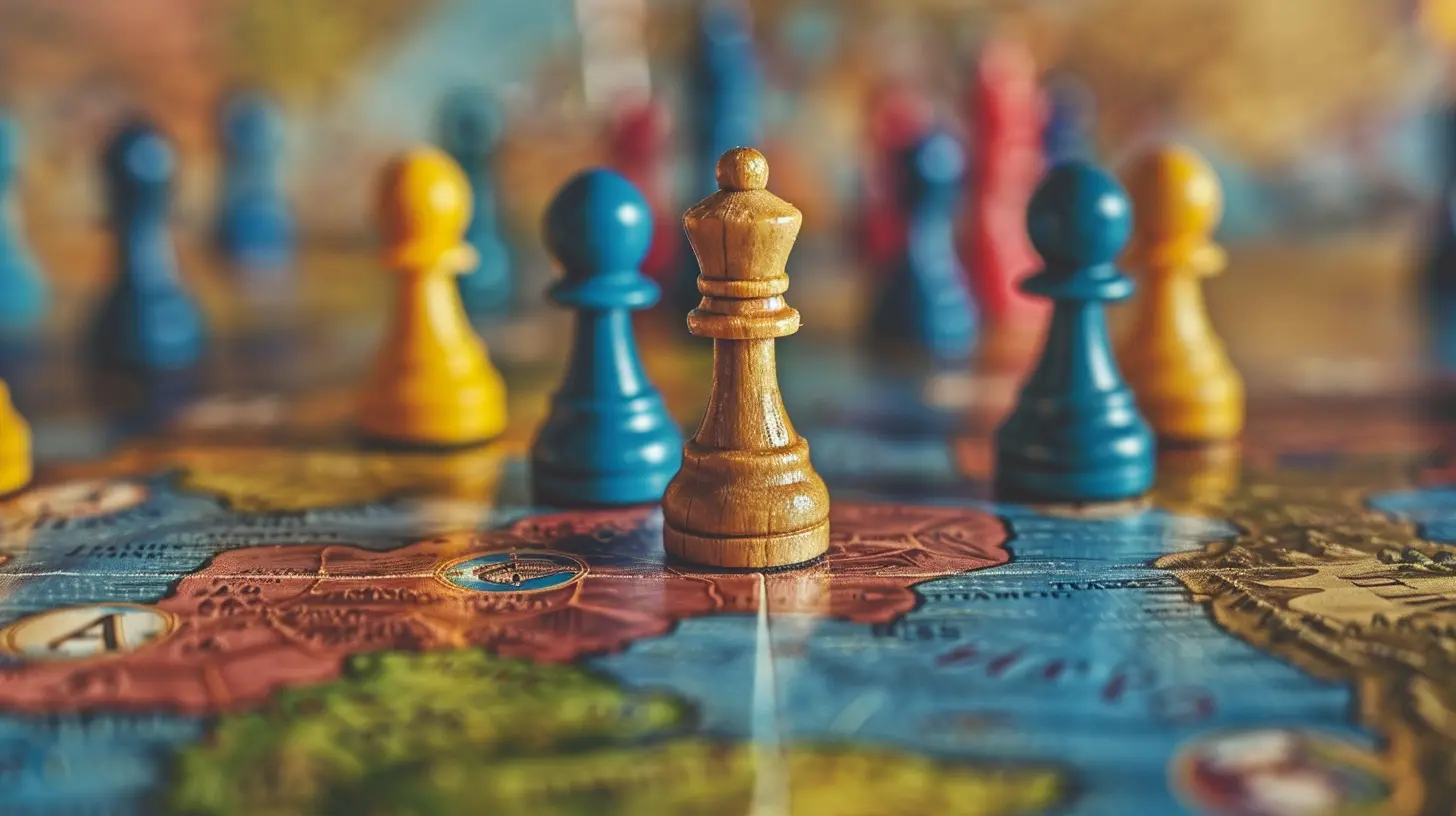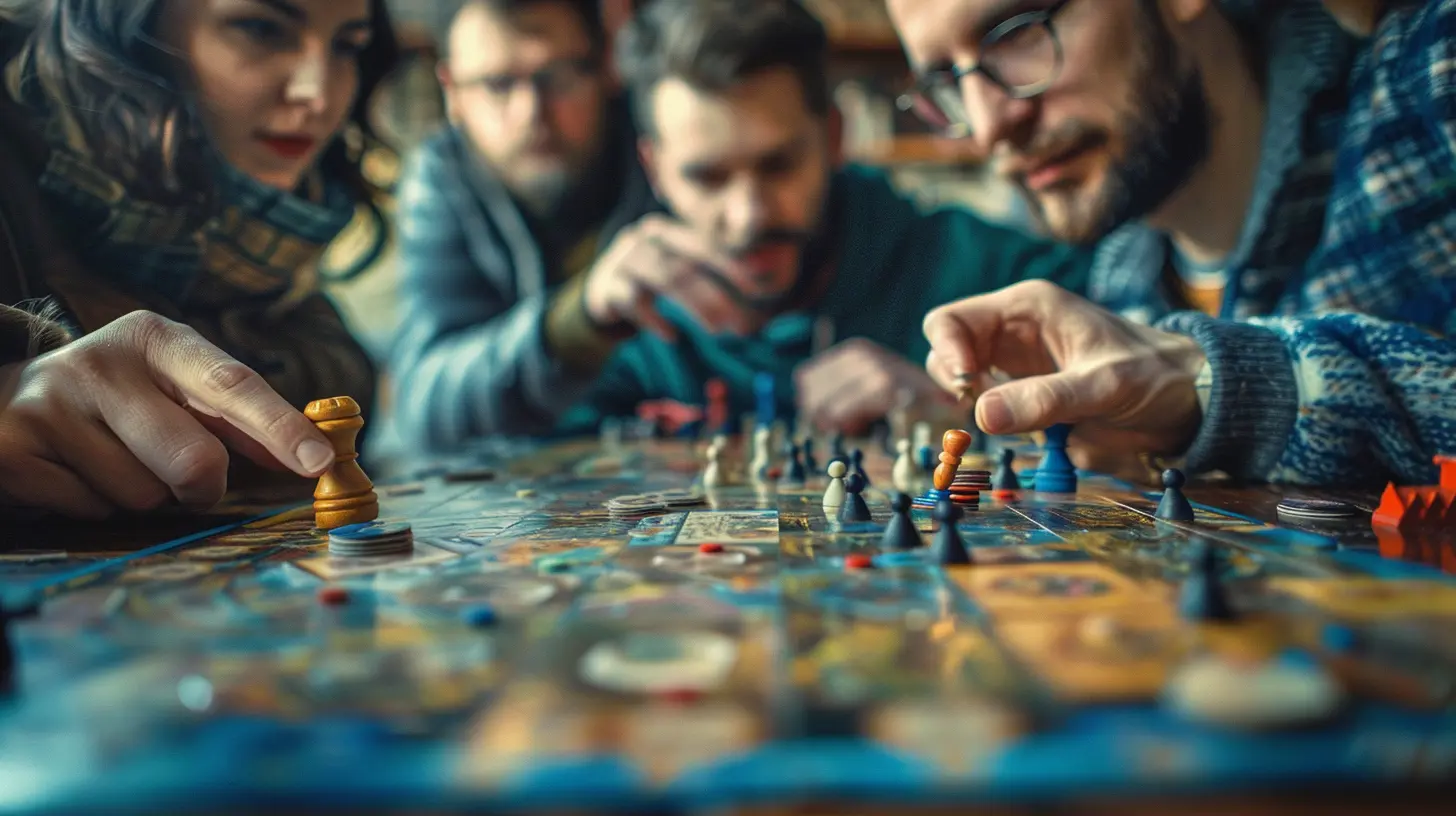Why Strategy Board Games Are Great for Developing Critical Thinking
7 October 2025
Let’s be honest — in the age of smartphones and streaming platforms, old-school board games might seem like relics of the past. But guess what? Strategy board games aren't just a fun way to kill time on a rainy Sunday — they’re secret weapons for sharpening your brain. If you've ever played a game of Chess, Settlers of Catan, or Risk, then you already know they can be intense brain workouts disguised as fun.
In this article, we’ll dive deep into why strategy board games are great for developing critical thinking skills, and how they can help you or your kids think clearer, decide faster, and even be better at solving life's curveballs.
What Exactly Is Critical Thinking?
Before we get into the nitty-gritty of how games work their magic, let’s break down what critical thinking actually means. It’s not just about being smart or having a high IQ. Critical thinking is the ability to analyze a situation, evaluate options, and make sound decisions based on logic — not emotion or impulse.You know when you're playing a game and you have no idea whether to attack, defend, or trade resources? That moment you're agonizing over your next move — that's critical thinking in action.
It’s like being a mental ninja. 🧠⚔️
The Hidden Brilliance of Strategy Board Games
Strategy board games are kind of like boot camps for your brain. Unlike mindless games that rely on luck (looking at you, Candy Land), strategy games require thoughtful planning, prediction, and reflection.Let’s break down how these games help build your mental muscles.
1. They Make You Analyze Every Move
In strategy games, every action has a reaction. You can’t just make a random move and hope for the best. You have to think several steps ahead — sometimes 3 to 5 moves into the future.Take Chess as an example. You're not just thinking about your move; you're thinking about your opponent's possible responses, the consequences of those responses, and your own counter to that response. That’s analysis on steroids.
Benefits:
- Improves foresight and planning.
- Encourages deeper thinking and patience.
- Enhances the ability to weigh pros and cons.
2. Teaches Problem-Solving On The Fly
Every round in a strategy game unfolds in unpredictable ways. That perfect plan you had? It could go up in smoke if another player makes an unexpected move. When that happens, you need to adapt — fast.This real-time problem-solving strengthens mental agility. You're constantly adjusting your strategy — just like you would in real-world situations.
Benefits:
- Boosts adaptability.
- Teaches how to adjust perspectives.
- Develops quick and logical decision-making.
3. Encourages a Big-Picture Mentality
Some games aren’t just about winning a single battle — they’re about dominating the whole war. You need to manage resources, maintain alliances, and keep long-term goals in mind. You can’t tunnel vision on a single piece of the puzzle.Think about games like Civilization or Twilight Imperium. Every choice could snowball into a major win or disaster down the line.
Benefits:
- Builds strategic planning skills.
- Helps prioritize and manage limited resources.
- Fosters long-term thinking.
4. Promotes Emotional Control
Ever lost a game of Risk and wanted to flip the board? Yeah, we’ve all been there.But playing strategy games also teaches you patience and emotional regulation. You learn that getting frustrated or making rash decisions usually backfires. Over time, you get better at keeping cool under pressure, a skill that’s incredibly valuable in life.
Benefits:
- Encourages emotional intelligence.
- Builds resilience and mental grit.
- Trains focus and impulse control.
5. Develops Social Interaction and Communication
Though it sounds ironic, strategy board games are both intensely solo and delightfully social. You’re always calculating your own path, but at the same time, you're interacting with others — whether negotiating, bluffing, or collaborating.Games like The Resistance or Codenames require reading people, detecting deception, and communicating clearly. And believe it or not, all of these social interactions feed into your critical thinking ability.
Benefits:
- Enhances interpersonal skills.
- Sharpens communication and negotiation abilities.
- Teaches empathy through perspective-taking.
6. Builds Pattern Recognition
One underrated skill that strategy games build is pattern recognition. The more you play, the more you start recognizing common traps, predictable strategies, and familiar paths to victory.In games like Go or Azul, pattern recognition becomes second nature. You start to see your gameplay evolve based on previously successful tactics.
Benefits:
- Strengthens memory and observation.
- Helps identify cause-and-effect relationships.
- Makes abstract thinking more intuitive.
Real-Life Scenarios Where These Skills Apply
Alright, so we’ve established that strategy board games are fantastic for developing critical thinking. But how does this actually help you in day-to-day life?Here’s how:
- In School: Kids who regularly play strategy games often pick up on math, logic, and reading comprehension faster. Their brains are already used to analyzing complex scenarios.
- At Work: Whether you're managing projects or solving customer problems, being able to think critically and strategically is a major asset.
- In Personal Life: From budgeting your monthly expenses to planning a vacation, making smart choices about resources and time benefits greatly from strategic thinking.
So yeah — that last game night? It wasn’t just for laughs. It was actually brain training in disguise. 🎲💡
Best Strategy Games to Start With
If you're excited to start flexing your mental muscles, but you're not sure where to begin, here are some top picks for different skill levels:Beginner-Friendly
- Ticket to Ride: Great for pattern recognition and planning.- Carcassonne: Perfect for introducing strategic placement and area control.
Intermediate
- Catan: Teaches negotiation, resource management, and long-term planning.- Pandemic: A cooperative game that strengthens group problem-solving.
Advanced
- Twilight Struggle: A Cold War-themed game that requires deep strategy.- Through the Ages: Epic civilization-building with a heavy focus on critical decisions.
How to Get the Most Out of Playing
To really improve your thinking skills, don’t just play mindlessly. Here are some tips to turn your game nights into brain-boosting sessions:Reflect After Playing
Ask yourself what went right or wrong. Could you have made better choices? Did you miss a critical opportunity?Change Strategies Often
Don’t rely on the same tactic every time. Try new approaches. Experiment with riskier moves and see how they pan out.Discuss With Other Players
Talk strategy after the game. Hearing other perspectives gives you a broader view of decision-making.Play Regularly
Like any skill, critical thinking improves with practice. Make it a habit — even if it's just once a week.Why Parents and Educators Should Care
If you're a parent or teacher looking to help kids develop better thinking skills, strategy board games are gold.Not only are they screen-free and social, but they also sneak in learning under the radar. Kids don’t even realize they’re building essential cognitive skills — because they’re too busy having fun.
Plus, many of these games tie directly into educational concepts like math, history, economics, and language. It's education without the eye rolls.
Final Thoughts
Let’s face it — life is a giant, unpredictable game. The better your strategy, the smoother your journey.Strategy board games might look like a box of bits, cards, and dice, but they’re more than that. They’re brain gyms, emotional teachers, and problem-solving labs rolled into one.
Whether you’re a competitive Chess master or a casual gamer, the mental benefits of these games can be profound. So, dust off those game boxes, gather your crew, and challenge your brain — one move at a time.
Because while luck can win you a round, strategy wins the game — on the board and in life.
all images in this post were generated using AI tools
Category:
Board GamesAuthor:

Emery Larsen
Discussion
rate this article
2 comments
Atlas McBride
Rolling dice and sharpening minds—welcome to brain gym!
February 20, 2026 at 5:38 AM
Amira McGinnis
Great article! Strategy board games truly enhance critical thinking skills, promoting problem-solving and decision-making. They encourage players to analyze situations and think several moves ahead.
October 7, 2025 at 5:01 PM

Emery Larsen
Thank you! I’m glad you enjoyed the article and appreciate your insight on how strategy board games foster critical thinking!


